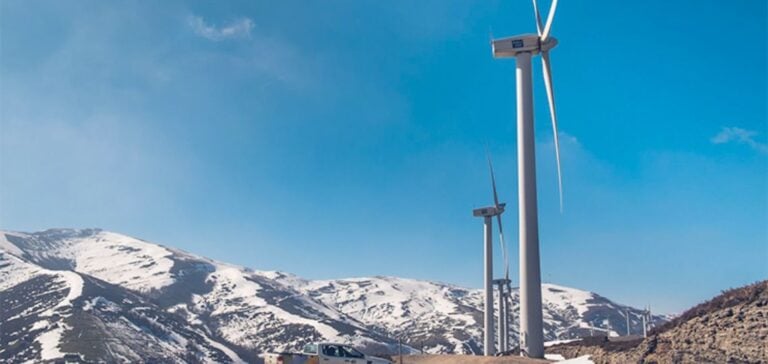Iberdrola España, in collaboration with Biocantaber, launches work on the El Escudo wind farm in Cantabria.
Construction begins once the necessary permits have been obtained, marking an important milestone in the development of this renewable infrastructure.
The wind farm, which will have a capacity of 101 MW, is designed to produce enough energy to power 95,300 homes a year, while reducing CO2 emissions by 45,000 tonnes each year.
The first stages of work include the construction of access roads, foundations for the power lines, and site preparation for the substation.
This work is being carried out in accordance with the Autorisation Administrative Préalable (AAP) and current environmental standards.
Innovation and technology in construction
The El Escudo wind farm stands out for its integration of BIM (Building Information Modeling) technology.
This technology, developed in partnership with INGECID and the Santander School of Civil Engineering, enables precise, detailed management of the works.
BIM methodology helps minimize environmental impact by providing advanced visualization and better coordination of construction activities.
The project covers several municipalities: Molledo, Luena, and Campoo de Yuso, where 23 of the 24 turbines will be installed.
The remaining turbine will be located in Aguayo.
The management of environmental impacts and technical aspects is optimized through the use of this cutting-edge technology.
Economic impact and local support
The total cost of the project is 120 million euros, a significant proportion of which is allocated to local companies.
During peak construction periods, up to 200 jobs will be created, supporting various sectors such as public works, engineering and logistics.
The project also contributes to local economic development through the supply chain and services required to build the park.
Even before work begins, Iberdrola España is implementing support measures for local communities.
Initiatives such as the funding of English classes for the children of Campoo de Yuso illustrate the company’s commitment to the local people.
Once operational, the park will also offer attractive electricity tariffs to local residents.
Rigorous and challenging administrative processes
The project followed a strict administrative process, obtaining the Environmental Impact Assessment (DIA) in May 2021 and the Preliminary Administrative Authorization (AAP) in May 2022.
In October 2023, the Commission Régionale de Planification Territoriale et Urbaine (CROTU) approved the park’s construction.
Some turbines were excluded from the initial project to allow better integration with biodiversity, with the possibility of reinstating these turbines after a subsequent assessment.
The development of the project has also been marked by legal challenges, including appeals against the project by local groups.
However, the relevant courts, including the Superior Court of Justice of Cantabria (TSJC) and the Superior Court of Justice of Madrid (TSJM), validated the project, allowing work to continue.
The El Escudo wind farm represents a significant step forward in Spain’s renewable energy sector, combining technological innovation with a commitment to local communities and the environment.






















